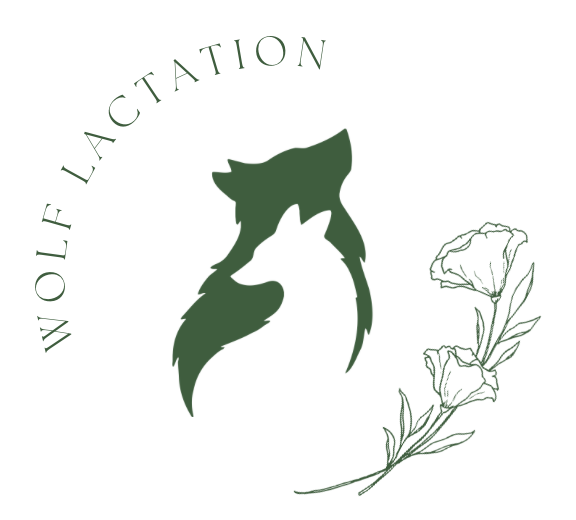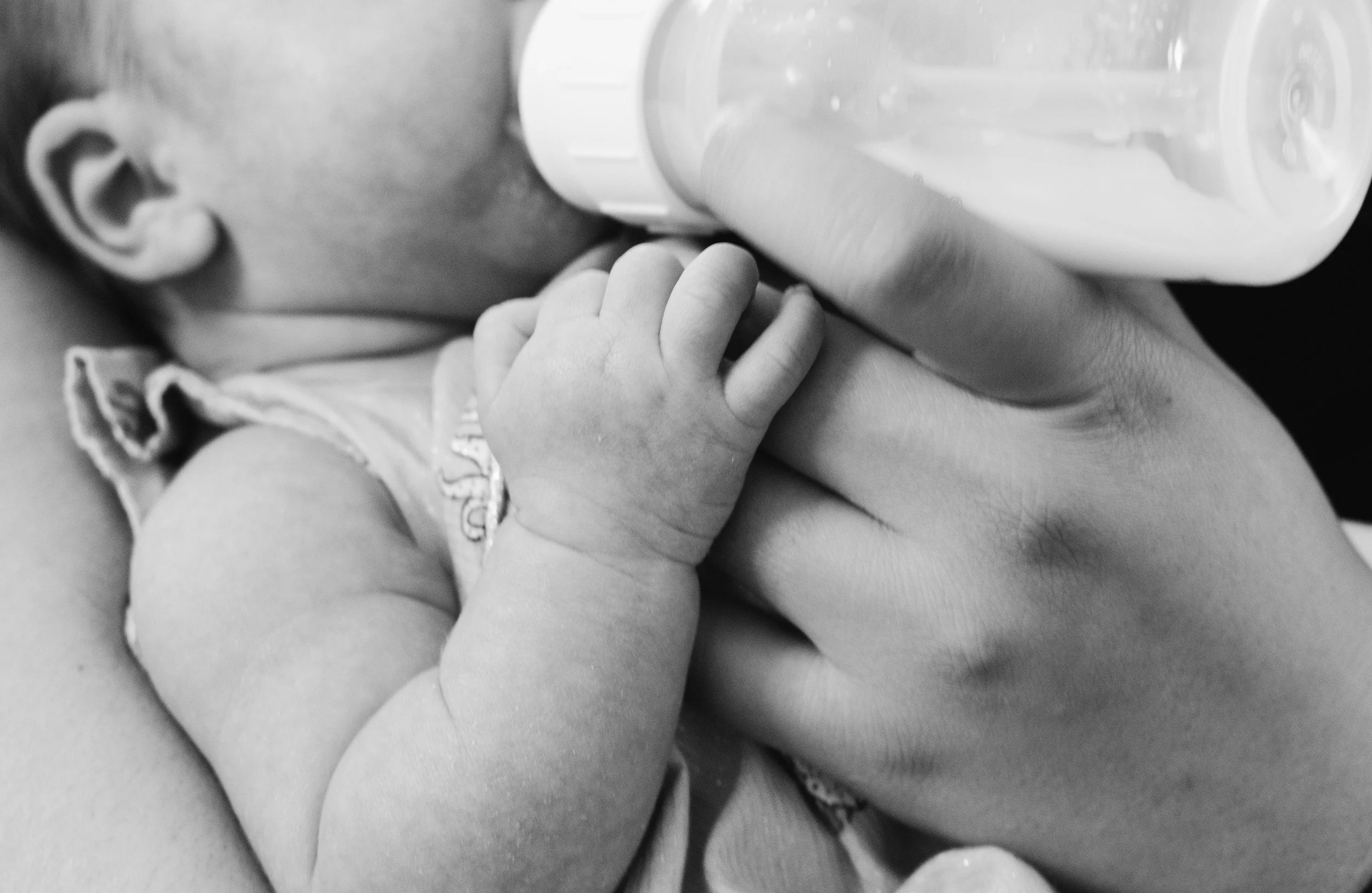Milk Storage Guidelines Demystified
The most updated guidelines referenced in this blog post are drawn from the CDC's recommendations for storing human milk, which can be found here.
There are many reasons why people chose to pump and store their breastmilk. Some store milk for when they are separated from their baby due to work, school, or travel, some because their baby needs extra milk after or instead of feeding at the breast, and some just like having extra milk on hand "just in case".
Making sure you store your milk safely can feel like a confusing maze of rules but it is actually quite simple to make sure your baby's food is safe and that you don't waste any of your hard earned supply.
Getting started is easy:
Make sure you clean your hands first with soap and water or an alcohol-based hand gel. Gather your pumping supplies and make sure they are clean before use. You will clean your pump parts and milk containers with warm soapy water, rinse them with clear water and let air dry. You can also use a sterilizer to clean your pump parts but you don't have to sterilize them for every use. Keep in mind that you will want to store your milk in small quantities to prevent waste. 2-4 ounces (60-120mL) is a good range.
Countertop, fridge, or freezer:
On the countertop: Human milk is unique in that it has many antibacterial properties that prevent growth of harmful organisms that would make the milk unsafe to eat. Freshly pumped/expressed milk can sit safely on the countertop for up to 4 hours. Keep the container of milk away from heat sources and out of direct sunlight. Milk that was frozen and then thawed can sit on the counter for 2 hours before feeding it to your baby.
In the fridge:
Freshly pumped/expressed milk can stay in the fridge for up to 4 days. This is good for milk that will be fed to your baby soon—within the next 3 days. If you pull frozen milk out of the freezer and put it in the fridge to store, it will be safe to feed for 24 hours. This is a convenient option for milk that will be used by the following day, or for milk that will be taken to a daycare provider the next morning. Keep in mind that milk that was previously frozen and has thawed can never be re-frozen. It must be used or discarded 24 hours after thawing.
In the freezer:
Freshly pumped/expressed milk can be stored in the freezer for up to 6-12 months. This gives you plenty of time to use it later! Freezing milk is a great option for longer term storage when you aren't likely to need it in the next few days to a week, or if you are storing milk for travel away from your baby. You will want to continue storing milk in the freezer in small quantities, using small bottles or freezer bags that are specially labeled for human milk storage. Keep in mind that your milk will expand a bit when it freezes so leave a little room in the top of the containers so they don't crack or break. Keep your frozen milk in the coldest part of the freezer so it stays at a steady temperature. Remember: milk that was previously frozen and has thawed can never be re-frozen. It must be used or discarded 24 hours after thawing.
Best methods for using your milk later:
Your baby may not mind drinking their milk cold but many babies prefer it warmed and that is a wise move for the newborn who isn't used to cold liquids in their stomach. You can warm the milk by placing the container in a large mug or bowl of warm water or use a bottle warmer. You never want to sterilize or boil your milk. This will damage the milk and can cause harm to your baby. Also, absolutely never use a microwave for heating milk or any other food for your baby. This can create uneven pockets of heat and can cause dangerous burns in your baby's throat.
When baby doesn't finish the prepared bottle:
If your baby consumed only part of the bottle you prepared and didn't finish it, you can feed the rest of that bottle to your baby if it is within 2 hours of them beginning it. That way, if the baby took a brief nap but was still hungry, they can finish the bottle they might not have been ready to eat all of earlier. After 2 hours you should discard anything left in the bottle since the baby's saliva has mixed with the milk and it may have contaminated the rest of the bottle for too long. If this happens often, consider preparing smaller amounts for your baby until they are ready for a larger volume.
So how much milk should I have stored in my freezer?
The short answer is—however much you want! We often hear about large freezer stashes of breastmilk but that is simply not necessary in most cases. A general guideline of 72 hours worth of milk for what your baby will need is a good rule of thumb when going back to work but you can adjust that amount to what you feel most comfortable with. There is no perfect freezer stash amount. One more consideration: If you are using a separate freezer that isn't in your kitchen, such as in the basement or garage and you don't access that freezer regularly, you might want to consider investing in a freezer thermometer that connects to an app on your phone. Many parents have discovered far too late that the freezer malfunctioned and all of their stored milk was lost when it thawed before they realized what was happening. A thermometer app can send an alert to your phone when the temperature in your freezer begins to drop, giving you time to rescue your milk and move it to another freezer before it thaws.
What do I do if I don't have a fridge or freezer nearby?
Sometimes you have to plan differently for storing your milk. If you are traveling for the day, taking a long car ride, or just in a place where you can't put your milk into a fridge or freezer within 4 hours, you can store your milk in an insulated cooler. Put frozen gel packs in the cooler and you can store your milk in there for up to 24 hours. That gives you some time to transport it to a fridge or freezer. When traveling by plane and transporting your milk, make sure you review the guidelines for human milk transportation from the TSA to be prepared and to prevent any difficulty with your travels. You can find those guidelines here.
Wolf Lactation, LLC, founded by Jennifer Wolf, DNP, MSN, RN, IBCLC, CBE, offers compassionate, evidence-based support for families throughout their feeding journey. Jennifer provides prenatal education and breastfeeding consultations, both virtually and through home visits, with services that include guidance on bottle feeding and pumping. Her care is personalized, approachable, and grounded in clinical expertise. With a warm, supportive approach, Jennifer helps families feel confident and informed as they navigate the early stages of parenthood.




